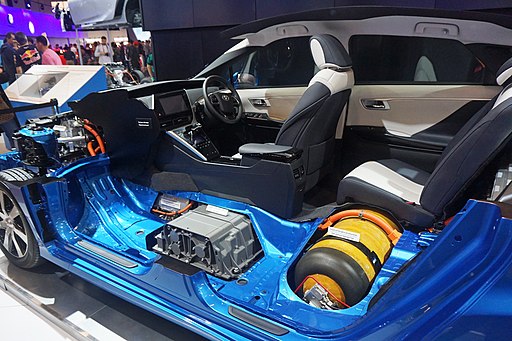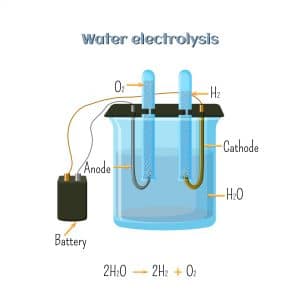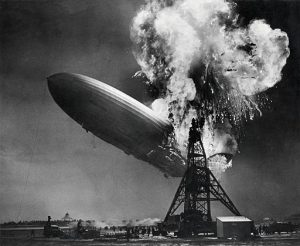
- By: admin
- 0 comment
Hydrogen; who says it is unsafe or is not low emissions?
Is Hydrogen safe as a fuel? In a recent lecture on the future of the automotive held at Loughborough Grammar School, a senior academic stated that hydrogen was not a serious contender as a fuel for vehicles in the future. Two reasons were given. First, although burning hydrogen did not result in greenhouse gas emissions the electricity used to create it does. Secondly, hydrogen is unsafe because if the hydrogen fuel cell was damaged in a crash the highly explosive gas would escape, with “dangerous consequences”. This post will counter these arguments and encourage readers to see that hydrogen is a safe and environmentally friendly fuel.
Emissions
I would like to refute these arguments, starting with the charge that it is not an emissions free substitute for diesel or petrol. There are three methods of hydrogen production.
- Grey Hydrogen is produced from natural gas and does produce significant carbon emissions.
- Blue Hydrogen is also from produced from natural gas, but where the carbon emissions are captured and stored, or reused.
- Green Hydrogen is produced by electrolysis, that requires only pure water and electricity making the process is emissions free.
The UK government has made a pledge to reduce emissions and in particular its commitment to “NET Zero” emissions. Therefore, although Blue Hydrogen will be a source
In the meantime, a new study by the universities of Exeter and Cambridge in the UK and Nijmegen in the Netherlands has concluded that use of electric cars leads to lower carbon emissions overall. This is the case, even if electricity generation still relies on fossil fuels. Hydrogen powered cars use electric motors, but have a hydrogen fuel cell rather than batteries providing the electricity. I believe therefore, that the studies’ findings can be equally applied to hydrogen powered vehicles.
Safety
You will often hear the cry, “What will happen if the hydrogen fuel cell is ruptured in a crash?” That is a good question. Just as good a question would be “What will happen if the petrol or diesel tank is ruptured in a crash?” True, hydrogen is more flammable than petrol, but it gives off less heat. In addition, hydrogen is lighter than air and will rise, with any flames, upwards. Whereas petrol and diesel will pool on the ground and stay there for quite a while. This will increase the risk of it catching fire. A much more dangerous outcome.
A classic example is that of the airship Hindenburg, that caught fire and was destroyed during its attempt to dock with its mooring mast near New York in the 1937. There were 35 fatalities (13 passengers and 22 crewmen) from the 97 people on board. The majority of the victims were burnt to death, but not by the hydrogen. As you can see in the picture, it is burning off high into the air. It is estimated that the hydrogen in the Hindenburg burned out within about 90 seconds. The people who died of burns, died in fires resulting from the diesel fuel used in the airship’s engines.
Still worried? When talking about the companies fuel cells in a recent article on AutoGuide.com, Mike O’Brien, vice president of product, corporate and digital planning at Hyundai said,
“That tank will sustain, I think it’s over 12,000 PSI (827 bar),”
which gives it a large margin of safety. He also stated,
“There’s been a number of manufacturers that demonstrate the robustness of their tanks. They’ve used armour-piercing, military-grade performance rounds,” he said. “Toyota did that, frankly, and I think you can go on YouTube and see that video.”
To end
I trust that this blog has calmed any concerns you might have had, that hydrogen is anything other than a safe and environmentally friendly fuel. If you want to read more on how hydrogen the fuel will impact the future of transport read our forthcoming article, “Why Hydrogen is the future for road transport.” Thanks for reading this post.
Glen Winkfield
20th July 2020
